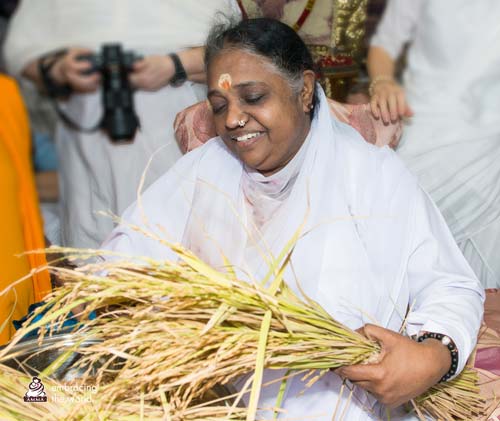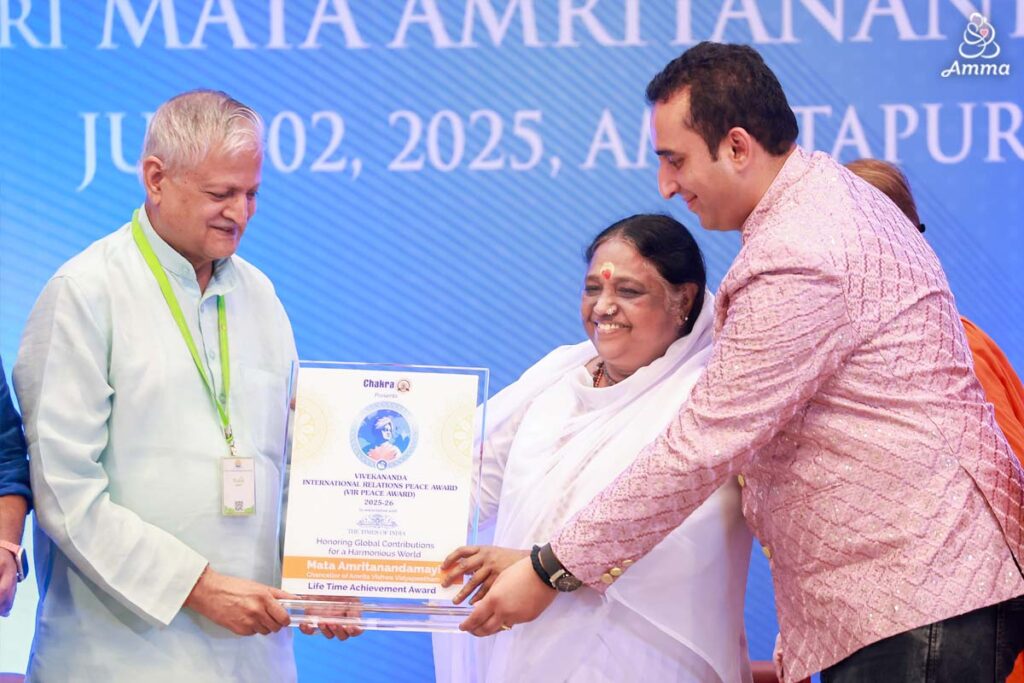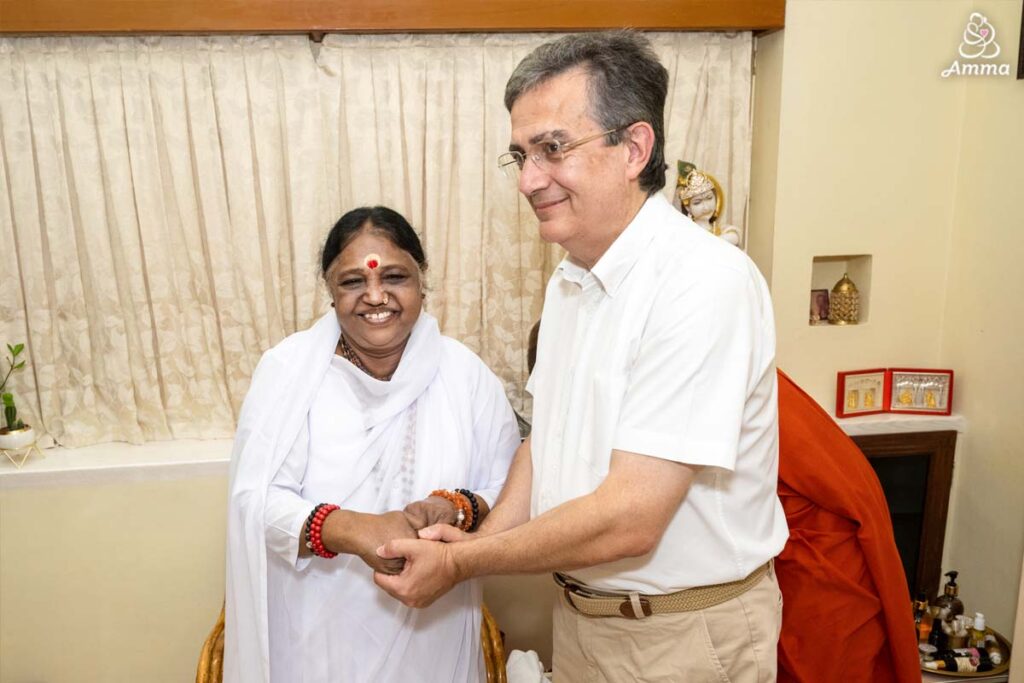61% of India’s agricultural land is rainfed; due to lack of irrigation facilities, farmers can cultivate only one crop a year. During the rest of the year, most are forced to work as daily laborers on construction sites in order to earn money. These rainfed areas are home to a whopping 84% of India’s rural poor.
That makes irrigation a central tool in the fight against rural poverty – farmers with access to irrigation can cultivate two or more crops per year, and avoid the unstable and underpaid life of the daily laborer.
Farmers in the Amrita SeRVe village of Sadivayil in the Coimbatore District of Tamil Nadu live in a rainfed area, and have cultivated just one crop a year for many years now. This year, things will be different.

When Sreeni KR, Amrita SeRVe’s program manager in Sadivayil, first visited the village in May 2016, he quickly determined that one of the biggest problems facing the farmers of the village was their inability to cultivate more than one crop per year. He also saw that none of the village’s five bore wells were operational. After consulting with Amma, he decided to focus on organizing the farmers to work collaboratively and to get the bore wells up and running. The motors have been repaired for two of the bore wells already, and Sreeni has successfully organized the farmers, motivating them to undertake group farming which greatly reduced costs, and encouraging them to try organic methods of cultivation. Although he didn’t speak their language, his persistent efforts won over the farmers’ hearts and they came together to form the Amrita Sadivayil Farmers Club, with 20 members. The cumulative land holding of 35 acres began to see action.
“We hardly realize the amount of effort that farmers must put in, in order to grow food that we can eat”
Guru Prasadh
The farmers decided to try to cultivate organic rice, and after soaking them in indigenous organic fertilizers, they sowed the seeds. The seedbeds were irrigated with water coming from a natural stream atop a nearby hill. “We hardly realize the amount of effort that farmers must put in, in order to grow food that we can eat,” stated Guru Prasadh, an Amrita University student who visited the village during this time to support the villagers’ efforts. Along with his classmates, Guru is working on a solar pump that can help ease the water shortages the villagers have been facing. Initial results are promising, and this week farmers from Sadivayil made the trip to Amritapuri to share their success with Amma and make an offering of their first organic rice. In fact, the grains of rice that fell from their fingers into Amma’s hands was the sign of their first successful crop, organic or not, in the last five years. Amma lovingly received the gift, inquired into the details of the farmers’ agricultural practices and encouraged them to continue group farming using organic methods.




The farmers are deeply grateful to Amma for her support in turning their community around. They also wanted to ask Amma’s blessing for their upcoming efforts: after they harvest the rice paddy, instead of taking up daily labour as they have in years past, the farmers of Sadivayil will plant urad dal and millet.
On December 28, the harvest festival formally begins. Faculty, staff and students from Amrita University will lend their support by participating in the harvesting festival. In her role as Chancellor of Amrita University, Amma has directed the university to focus on solving problems for people in rural India, saying, “Villages are India’s foundation.” “With support from Amrita SeRVe, we have no doubts that within three years the village of Sadivayil will be producing certified organic produce,” says Br. Sekhar, who is doing his MTech at the Ettimadai campus of Amrita University as well as volunteering for the project in his free time. “400 of the world’s scientists recently proclaimed that it is the small and marginal farmer practicing organic agriculture in developing nations that will be key to our food security in the future. Our farmers in Amma’s villages are beginning to do their part.”






